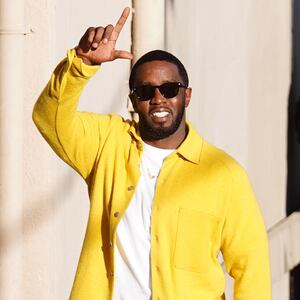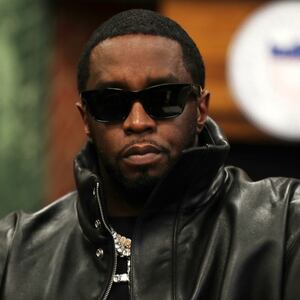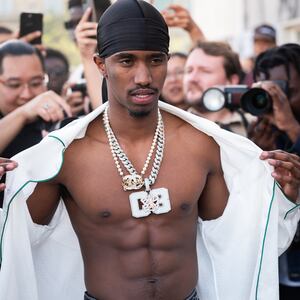Last week, federal officers raided two properties owned by Sean “Diddy” Combs—and the crackdown is also prompting fresh scrutiny of Combs’ relationships with several fellow A-listers.
Though the Department of Homeland Security previously confirmed that Homeland Security Investigations, with assistance from local law enforcement, had carried out the raids, it did not provide further details. Multiple outlets however, including the Associated Press, reported that the searches are believed to be part of an investigation into sex trafficking allegations made against the entertainment mogul.
Named in five civil lawsuits filed since November 2023, Combs also faces allegations of soliciting and distributing narcotics, sexual assault, and gang rape. TMZ reported Thursday that, according to its sources, subpoenas have already begun to be issued to multiple businesses affiliated with Combs, including a phone provider and his privately chartered jet.
The developments are also bringing up new questions about the A-listers close to the rapper.
One such star is the actor Cuba Gooding Jr., whom producer Rodney “Lil Rod” Jones named in his lawsuit against Combs: Jones accuses Gooding Jr. of groping him in a “makeshift studio” on a yacht rented by Combs in 2023.
Actor and venture capitalist Ashton Kutcher, whose public friendship with Combs goes back decades, is also reportedly expecting to be subpoenaed as part of the sex trafficking investigation into Combs, the Daily Mail reported Friday, citing an unnamed source.
Kutcher has yet to comment on the allegations against Combs, but their bond is thoroughly documented. In the mid-2000s, the pair were so close, they took to touting themselves as the new Rat Pack alongside actor Jamie Foxx.
The sitcom That ’70s Show launched a then-20-year-old Kutcher to breakout star status in 1998. Five years later, the actor co-created and produced the MTV series Punk’d, spawning a cultural phenomenon when the sophomoric prank show debuted in 2003.
Combs’ Making the Band was another huge property at MTV at the time and helped foster their friendship, Kutcher and Combs told James Corden in a 2018 joint interview.
“I gave [Kutcher] a call one day and said, ‘I heard that you are going to punk me, and I just don’t think that’s a good idea,’” Combs told Corden, when the host asked how the two met.
“I think it was some version of, ‘If you do that, that will not end well for you, but I think we should work out a deal,’” Kutcher amended.
After accepting Kutcher’s offer to go for a run early on in their friendship, Combs was inspired to complete the New York City Marathon, which he did in 2003, he told Corden.
“We had paparazzi all around us at the time and [Combs] was like, ‘You gotta slow down, but make it look like you’re not slowing down because I don’t wanna look like I’m not gonna be able to finish this thing,’” Kutcher said on Hot Ones in 2019. “He was so upset over the fact he got skunked on this run, that year he decided to run the New York Marathon. He just can’t lose, even when he’s that close to humility, it becomes a driver.”
In the same Hot Ones interview, Kutcher declined to share stories from any of Diddy’s parties with host Sean Evans. “I’ve got a lot I can’t tell,” he said, pausing for a moment to consider. “I can’t tell that one either.”
Kutcher’s influence on Combs was clearly reciprocal. “Would it be wrong to assume that your friendship with Sean ‘P. Diddy’ Combs had something to do with you wanting to make this movie?” Kutcher was asked in a 2005 interview with The Daily Herald. Kutcher was busy promoting Guess Who, a loose remake of the 1967 classic Guess Who’s Coming to Dinner.
In the original film, a Black man (played by Sidney Poitier; the role would earn him a historic Oscar) meets the parents of his white fiancée. In a reversal, the remake finds Kutcher, in the starring role, meeting his Black fiancée’s parents.
“No, you’re right,” Kutcher responds. “Very much so. Our friendship has helped me become aware of the fact that people are becoming comfortable with something that’s still very uncomfortable.” Koltnow asks him to elaborate.
“When I was hanging out with Sean, people did not understand why this Iowa farm kid went out with this hip-hop mogul from New York,” Kutcher continues. “But it wasn’t that he was a hip hop mogul and I was a farm kid; it was because he was Black and I was white. It was that simple. If he was a white hip hop artist from New York, nobody would have noticed.”
“And the reason?” the reporter asks.
“People just aren’t comfortable with it yet,” Kutcher answers. “That’s why the movie needed to be made...as soon as I stepped outside my world and inside his (Combs’s) world, I understood how bad the problem was.”

Ashton Kutcher and Sean Combs together in Los Angeles in 2019.
Stefanie Keenan/GettyKutcher and Combs were also among the earliest celebrity adopters of Twitter; now known as X, and both men were frequently name-checked in news coverage about the then-brand new social media platform in 2009.
The following year, when Kutcher was cited by Time as one of the 100 most influential people of 2010, Combs contributed the accompanying praise.
“[Kutcher] is a sounding board for me,” Combs wrote for Time. “Like me, he’s a mogul—a new-media mogul. But we are yin and yang: I am in your face, but he is understated, cool, suave.”
Though focus is now trained on his ties to Diddy, Kutcher also came under fire last summer when reports emerged that he and his wife, actress Mila Kunis, had written character letters on behalf of their That ’70s Show co-star Danny Masterson during the latter’s rape trial. Masterson was convicted of raping two women and sentenced to 30 years to life in prison in September of 2023.
Shortly after issuing a public statement addressing their letters that advocated for Masterson, Kunis and Kutcher abruptly resigned from Thorn, the anti-child-sex-abuse organization Kutcher co-founded in 2019.
“I have worked for 15 years to fight for people who are sexually exploited,” Kutcher wrote, in the announcement of his exit. “Victims of sexual abuse have been historically silenced and the character statement I submitted is yet another painful instance of questioning victims who are brave enough to share their experiences.”
The Daily Beast reached out to Kutcher’s rep for comment.









